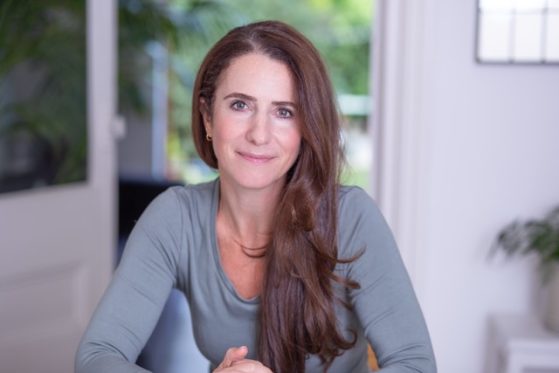Psychotherapy and Psychoanalysis
Dr Tara Calin
Struggling with painful feelings, or with difficult patterns of thinking and behaviour, is an inevitable part of life. It is part of being human.
Although painful feelings and experiences cannot be avoided, it is possible to try to understand them, and to find more helpful ways of relating to them. Seeking therapy can be a move towards understanding yourself more fully and taking more control over how you live your life.
Therapy can help whether you’re struggling in a particular area of your life or suffering from a more general sense of unhappiness, with feelings such as anxiety, anger, sadness, or confusion. For some people the onset is recent, for others, long-standing and life-limiting.

I have worked as a therapist for over 25 years, first training as a Clinical Psychologist and subsequently as a Psychoanalyst. I spent 15 years working full time in the NHS and then moved into private practice. I have extensive experience working with adults experiencing a wide range of psychological difficulty, from the mild to the complex end of the spectrum.
As a Clinical Psychologist I am trained in different psychological therapies, for example, Cognitive Behavioural Therapy and Cognitive Analytic Therapy. However, over the years I have gravitated towards a Psychoanalytic way of working, as I have found this to be most helpful for the people who come to me.
Psychoanalytic approaches seek to understand people on a deep level, discovering the anxieties and ideas that may hide, out of awareness, yet which have a powerful influence on the patterns that keep us stuck or unfulfilled in life. This way of working takes time, but the benefits can be significant and lasting.
I seek to provide a safe, regular space, in which thoughts, feelings and patterns of relating can gradually emerge and be understood together.
What I offer
Over the years, both within and outside the NHS, I have worked with people struggling with a wide range of difficulties, for example:
- Anxiety, including, panic attacks, phobias, obsessive compulsive and generalised anxiety disorder
- Traumatic experiences and post-traumatic stress disorder
- Difficult childhood experiences
- Experiences that are hard to overcome, such as the end of relationships or problems at work
- Self-defeating cycles, such as low self-esteem, self-harm and self-sabotage
- Depression
- Building and maintaining relationships
- Eating difficulties and problems with body image
- Bipolar disorder and difficulties managing mood and patterns of behaviour
- Bereavement and finding meaning in life after the loss of a loved one
- Addiction and other behaviours that damage both the self and others
- Sleep problems
- Or... those with no "name" for their difficulties, yet experiencing intense feelings such as anger, guilt, confusion, shame or emptiness.
Whilst some people attend once a week, many are looking for more in-depth work and have sessions two or three times a week. I also offer a four times weekly psychoanalysis. Therapy, especially the more intensive work, is a significant investment in oneself that can lead to lasting and profound change.
When I meet with someone for the first time, we think together about what the most helpful approach might be. Session frequency may change over time as needs and circumstances evolve. I tend to work with people in an open-ended way, and therapy can last from around one year to a number of years.
About me
Professional Qualifications
I have a degree in psychology and a doctorate in clinical psychology (including a post graduate diploma in Cognitive Behavioural Therapy)
Subsequently, I trained as a psychoanalyst with the British Psychoanalytic Association (BPA).
Professional Memberships
As a Clinical Psychologist I am a registered Practitioner Psychologist with the Health and Care Professions Council (HCPC), registration number PYL03317.
As a Psychoanalyst I am a member of the British Psychoanalytic Association (BPA) and I am accredited by the International Psychoanalytic Association (IPA), the world's primary accrediting and regulatory body for psychoanalysts.
I am also accredited by the British Psychoanalytic Council (BPC), registration number 45541. The BPC is the leading professional association for the psychoanalytic profession and a Professional Standards Authority accredited Register.
These bodies ensure a high standard of continuing professional development and practitioners are bound by their ethical and legal frameworks.




Next steps
If you would like to explore working together, please send me an email, or click here to write me a message.
First, we would have a brief conversation on the phone to establish whether meeting in person for an initial consultation might be helpful for you.
If we decide to meet for a consultation, this meeting tends to last for about an hour. It is an opportunity for you to tell me about yourself and for us to think about what has brought you to consider therapy. It generally takes two consultation sessions to come to a decision about how best to move forward.
If we decide that working together could be beneficial for you, we would agree on set times to meet each week. This is an important part of establishing a solid and predictable space.
If we come to the decision that I am not best placed to help you, I will try to make suggestions as to what might be of use to you.
Further information
My practice is in Crouch End, which is easily accessible from Muswell Hill, Finsbury Park, Highgate, Hornsey and surrounding areas of North London. Crouch End is on a number of bus routes, the W3, W5, W7, 41, 91 and 210.
The practice is also about 10 minutes walk (or a short bus ride) from Hornsey train station (on the Great Northern line leading straight into the city centre) and Crouch Hill train station (on the London Overground).
Therapy sessions, which last 50 minutes, generally cost around £80 - £90. There can be some reduction in fee for those who are in more intensive work, i.e. having more than two sessions per week. I also have a small number of reduced fee places available for those on a very limited income.
I am registered with the main insurance providers and liaise with them as necessary to secure ongoing treatment. If the insurance cover ends yet there is a wish for the therapy to continue, we can try to find a way forward with self-funding.
Contact
If you would like to discuss the possibility of meeting for a consultation, or if you have any questions, please get in contact.
You can either send an email to:
or use the adjoining contact form.